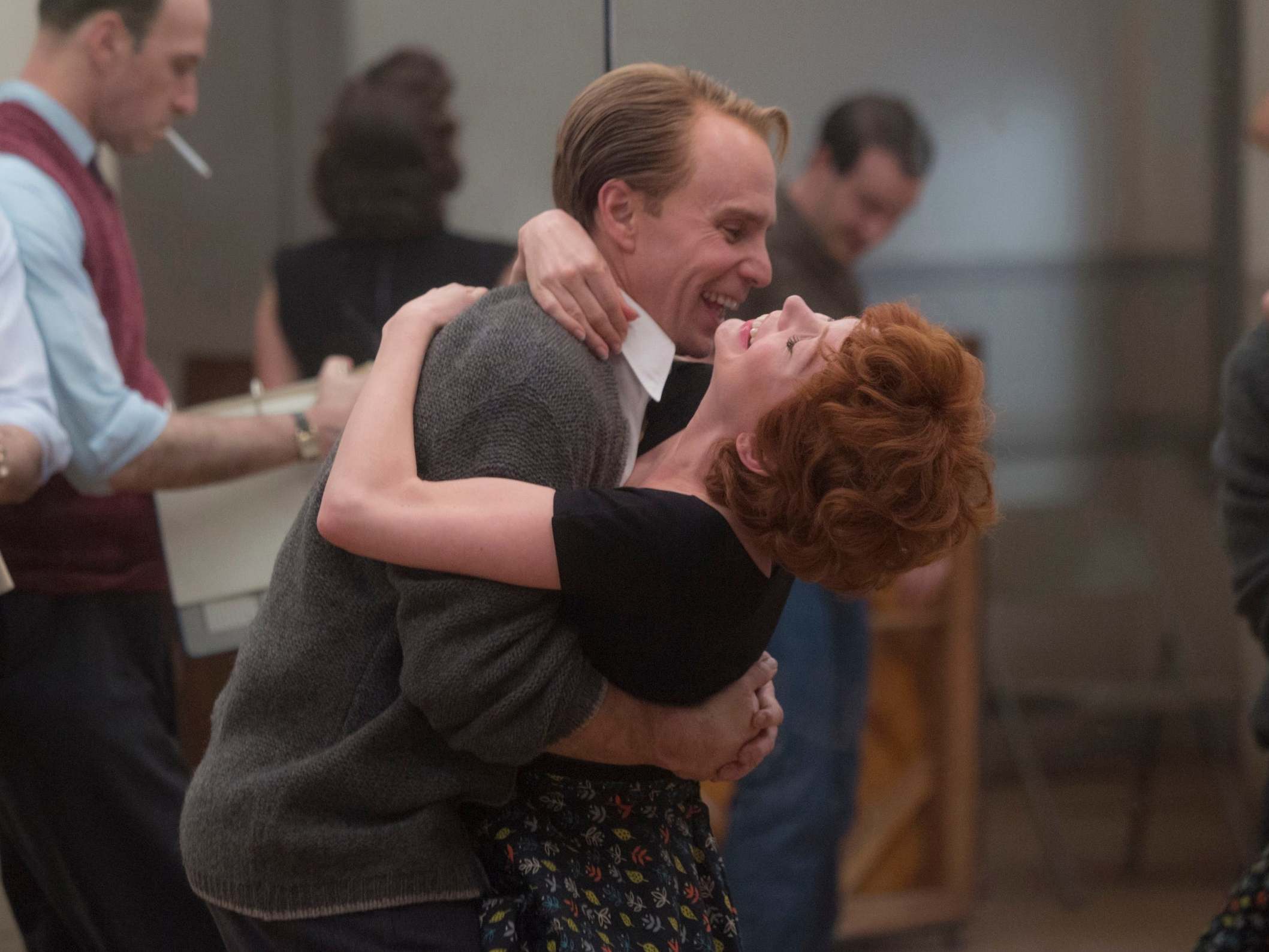Fosse/Verdon review: BBC drama hits all the right notes, but they're in the wrong order
For all its gloss, the dancing and sets and costumes, at heart Fosse/Verdon is a study of the possibilities and limitations of marriage

Fosse/Verdon (BBC2) sashays over to us, jazz hands aloft, four months after its American release, a train of rave reviews and awards nominations in its wake. It’s an eight-part drama with a large budget, co-produced by Lin-Manuel Miranda, who created Hamilton and bows to none in his knowledge of razzmatazz. There is no particular reason for it not to be fantastic.
It has a compelling real-life subject, the marriage of the superstar choreographer Bob Fosse, who won the Best Director Oscar for Cabaret in 1972, and the actor and dancer Gwen Verdon. She was a star in her own right but she also knew how to get the best out of him, and stuck by his side even after their marriage broke down.
The leads are played by two actors, Sam Rockwell and Michelle Williams, who are never difficult to watch. Rockwell’s Fosse slopes around the parties and sets, an endless fag hanging from the corner of his mouth, berating dancers, singers, and costumes he thinks fall short of perfection. In flashbacks, he remembers his own childhood, where he was taught to dance by teachers whose demands strayed into abuse. Fosse does not apply the same exacting standards to his own fidelity. He is up for chirpsing everything in sight and in the first episode wastes no time in tumbling a winsome German translator into his hotel room.
Williams is excellent. As you would expect from any respectable two-hander in 2019, Fosse/Vernon is at pains to subvert the traditional tortured-genius-plus-long-suffering-spouse narrative. At first, her Verdon seems to be enduring in silence, wearing a kind of clipped dignity as a mask, but as the show goes on we see that their destructive influences work both ways.
Given these ingredients, the finished soup isn’t as satisfying as it ought to be. In part, it’s the structure, which leaps around between decades and incidents like a showgirl. As the first episode opens, Fosse is old, and Rockwell's head covered with a bald suit, but soon we have jumped back to 1966, where Fosse is directing Sweet Charity, his first major film and a major flop.
Then it hops forward again to the filming of Cabaret. Then back, then forward, gradually divulging its plot. Perhaps the idea is to echo the teasing choreography he pioneered, where bodies seem to move against their own direction of travel. I’m sure it’s clever, but it’s confusing, too.
During one scene in the first episode, Fosse tries to persuade Cabaret’s producer, Cy Feuer, that he is the man to direct. Feuer disagrees. “This is an intimate musical drama, an adult picture,” he tells Fosse. “What you do, and you do really well, is style. Flash.” For all its gloss, the dancing and sets and costumes, at heart Fosse/Verdon is a study of the possibilities and limitations of marriage. It has all the right notes, but they’re in the wrong order. It doesn’t need all that jazz.
Join our commenting forum
Join thought-provoking conversations, follow other Independent readers and see their replies
Comments
Bookmark popover
Removed from bookmarks